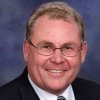Only two dozen American mega-churches—a church with at least 2,000 people in average attendance—existed in 1990 according to Outreach magazine. Today there are over 1,300 mega-churches in America. The mega-church movement has boomed.
But in the last few years a new label has emerged—the giga-church. A giga-church has over 10,000 people in average attendance. Over 36 giga-churches exist in the United States alone.
The giga-church title does not necessarily mean that God is blessing that particular congregation. There are many apostate preachers that have very large congregations. Bigness does not necessarily equal godliness.
The first church in Jerusalem dwarfed even the largest modern giga-church. God blessed this church in an unusual way. He first added a huge number of new believers, then He multiplied.
Add, Multiply, Divide
The culture of the New Testament Church was one of continual addition. Acts 2:41 tells us the Lord added 3,000 souls. Acts 2:47 says the Lord added daily. In Acts 4:4 another 5,000 men were added to the church, and Acts 5:12 says that “multitudes” were added. But there came a day when the Lord stopped adding and began multiplying.
And in those days, when the number of the disciples was multiplied, there arose a murmuring of the Grecians against the Hebrews, because their widows were neglected in the daily ministration. Acts 6:1
And the word of God increased; and the number of the disciples multiplied in Jerusalem greatly; and a great company of the priests were obedient to the faith. Acts 6:7
God’s multiplication of disciples brought exponential growth. I cannot imagine what it must have been like for those original 120 disciples to see their church explode in numerical and spiritual growth. God was working in a powerful way, but His plan of multiplication was not going to be limited to one location.
In one surge of persecution, the giga-church at Jerusalem became a scattered church. All the believers, except the apostles, were spread throughout Judaea and Samaria (Acts 8:1). This was the final stage of God’s plan for church growth. God was no longer just multiplying disciples, He was multiplying churches. The cultural shift was from one very large church to multiple assemblies that would reach all ethnic groups in every country around the world.
God gave his plan for the local church in Acts 1:8, “But ye shall receive power, after that the Holy Ghost is come upon you: and ye shall be witnesses unto me both in Jerusalem, and in all Judaea, and in Samaria, and unto the uttermost part of the earth.”
The word both in this passage indicates simultaneously ministering in all four areas. God fulfilled his plan in Acts 1:8 by scattering His church in Acts 8:1. In order to multiply the church, He first divided the church.
Today churches have a choice. They may willingly submit to the Acts 1:8 plan to witness to the uttermost, or God can use the Acts 8:1 plan to multiply His churches.
“Every Baptist a Missionary”
Few pastors adopted this plan for church multiplication like Johann Gerhard Oncken, my spiritual great, great, great, great grandfather. My mother, Gisela, and father, Otto Irmler, were saved in Baptist churches which Oncken helped begin in Germany and Poland respectively. It is difficult to measure the impact this man had on Europe.
Johann Oncken was born into a Lutheran home, became an apprentice to a tradesmen in a Scottish Presbyterian’s home, was saved in a Methodist Chapel in London, and became a Baptist preacher in Germany after reading the Bible. He was baptized five years after his conversion by the Baptist preacher, Barnas Sears. The next day, Barnas Sears organized a local Baptist church with six newly baptized converts and appointed Johann as the pastor.
Oncken had a passion for multiplying churches. There was no religious liberty in Germany in his day, but Oncken continued the work in spite of being harassed, fined, and jailed. During one stay in prison, the warden intercepted a note from Oncken’s followers informing their pastor about the current state of the flock. The note read, “Dear Brother, The Lord’s work goes on well, may that comfort and refresh your spirit. Yesterday we met in twelve places; the police are hunting for us, but failed to find us.”
Despite persecution, the churches grew, not only in Germany, but also across Europe. Oncken preached and labored in churches in Denmark, Sweden, France, Hungary, Prussia, Russia, and Switzerland. His love for souls was reflected in his motto: “Every Baptist a missionary.”
Oncken’s impact reached beyond his own church walls. Although his church, First Baptist Church of Hamburg, had an auditorium that seated 1,400 people, there were tens of thousands of believers that were members of more than 2,200 churches, preaching stations, and Sunday schools Oncken started in Germany. The total membership of all the churches he started in Europe, not including 17,000 Sunday School students of various ages, was 114,000 believers.
Pastor Johann Oncken believed the Bible demands that God’s people and God’s churches reproduce themselves many times over. In the history of the church, there have been few laborers who, by the power of God, have been so successful in bringing salvation to the lost.
What was the common link between Oncken’s churches and the church at Jerusalem? Their faith was alive and active, and they continued multiplying themselves.
The growth of the church in Jerusalem was a wonderful testimony to the spirit of God’s grace and power. Their growth revealed that their church was alive and active. They knew that they could reach a city by addition, but they could reach the world through multiplication.

